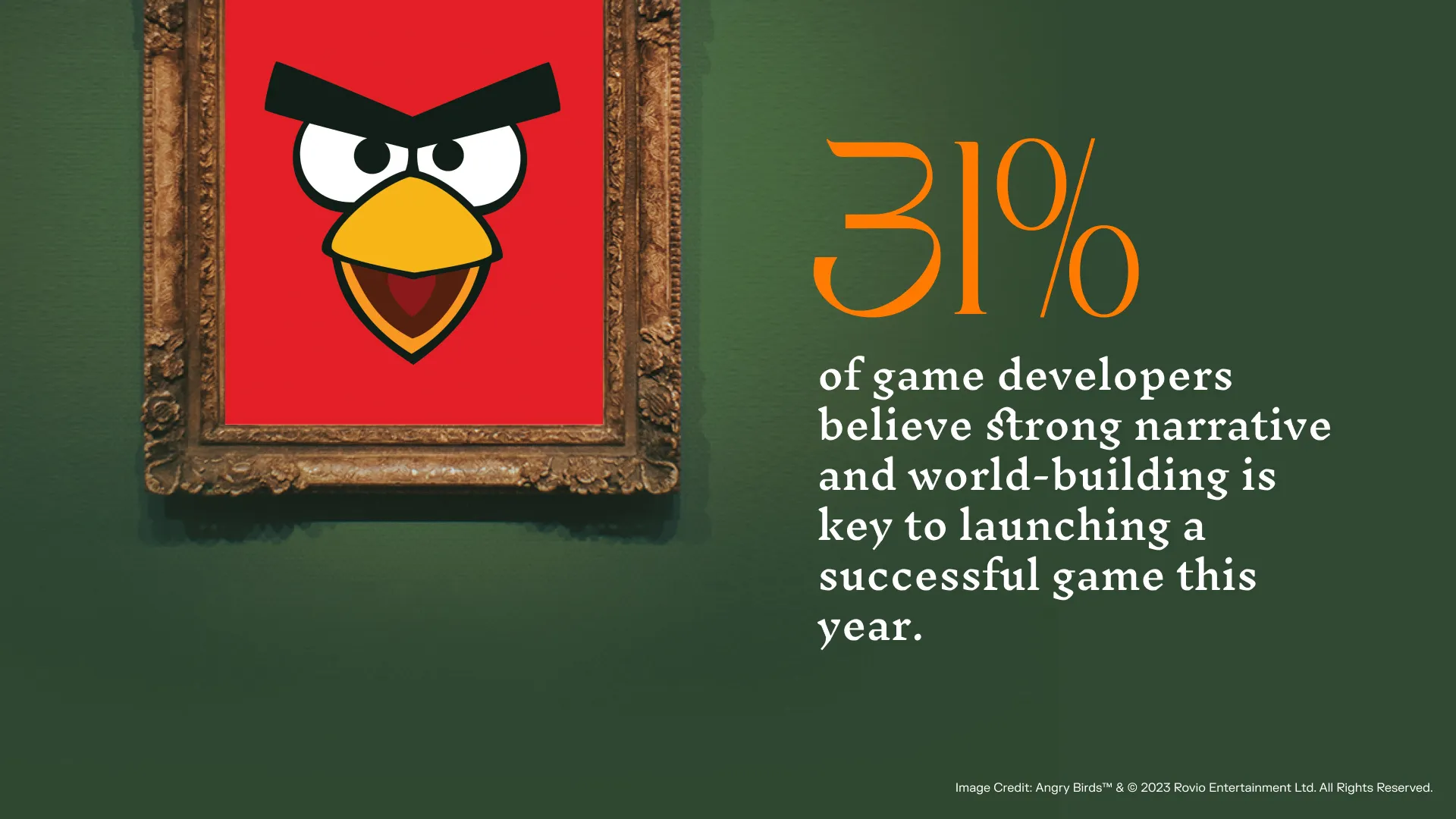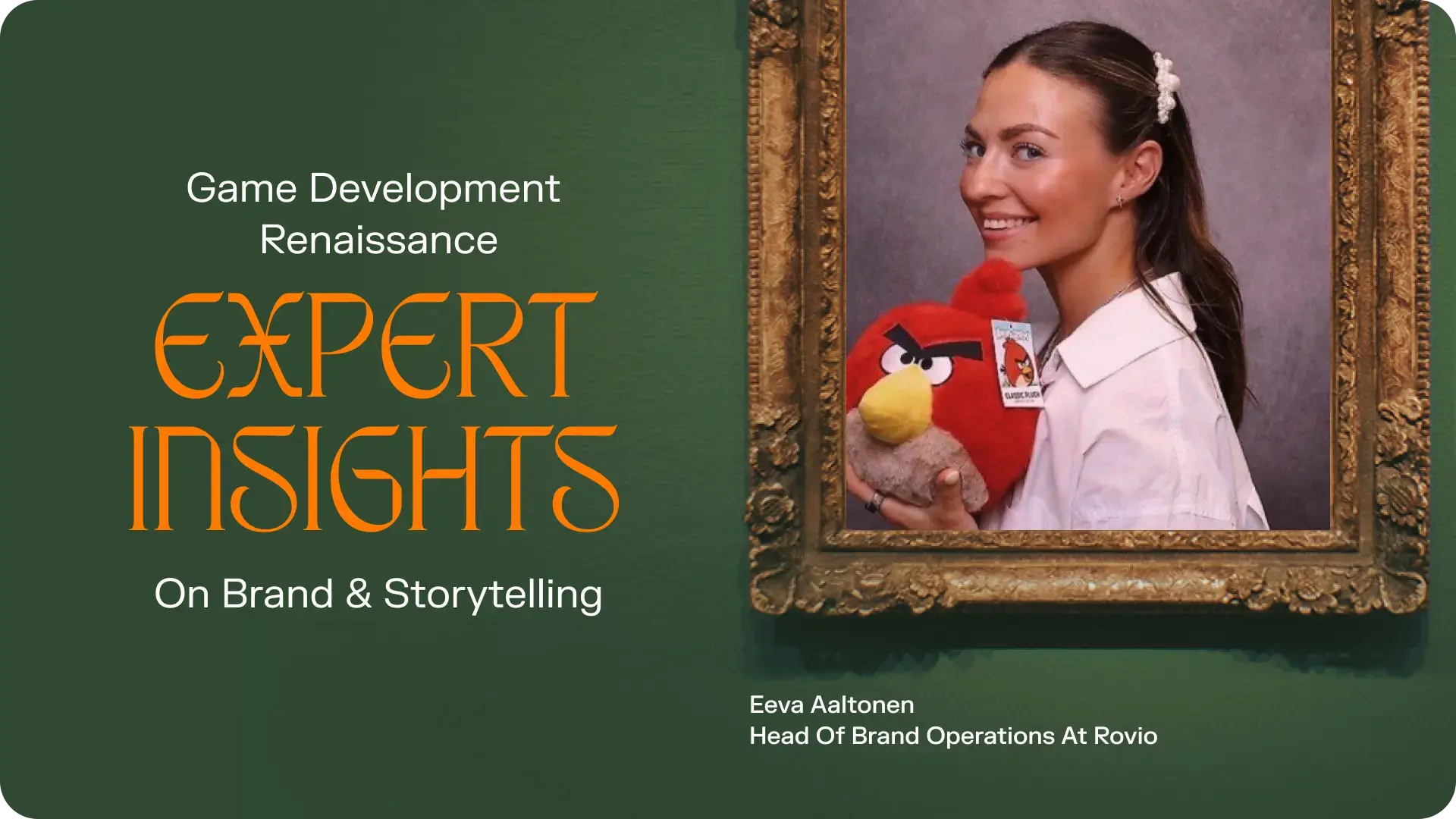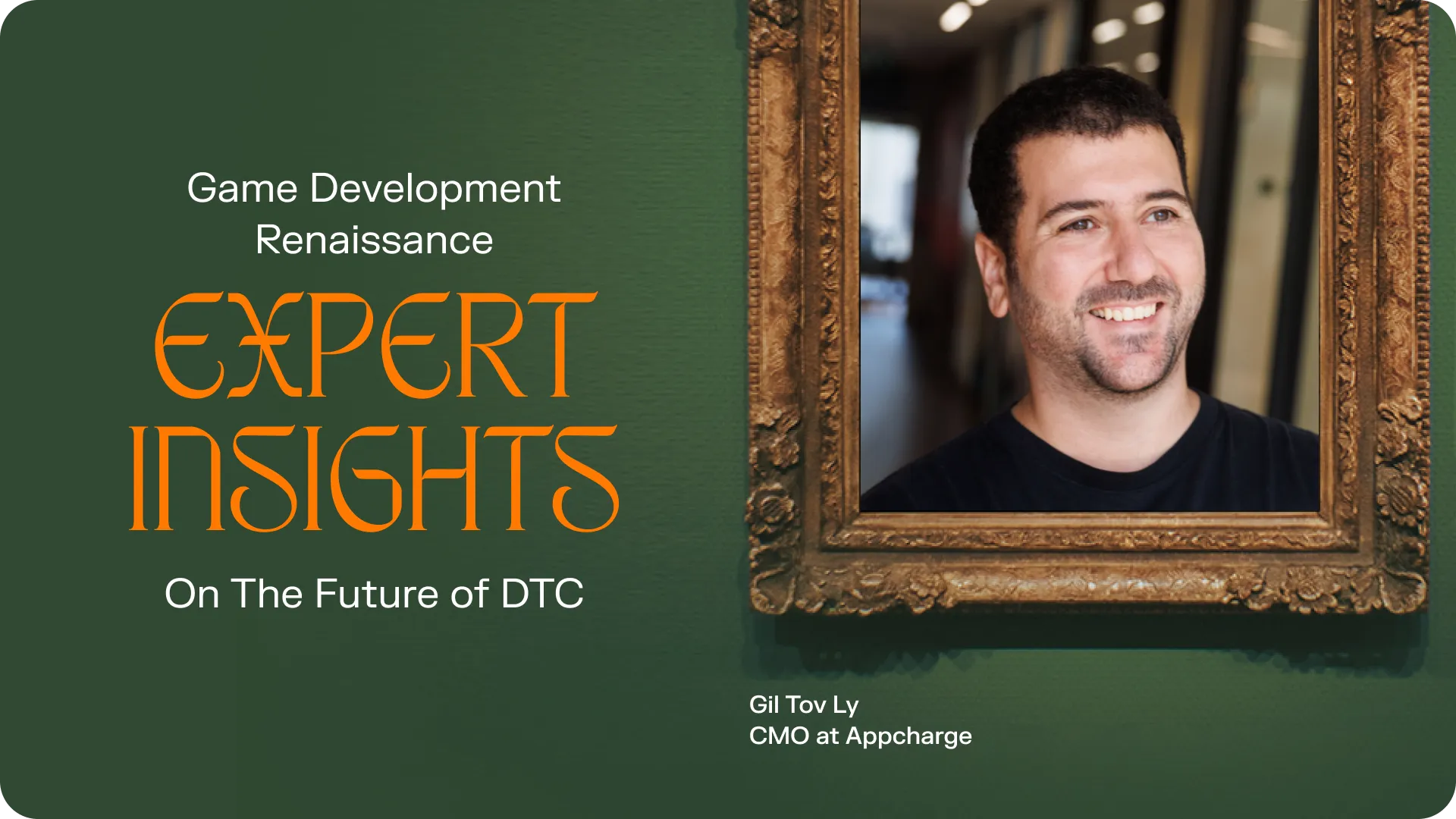Rovio's Head of Brand Operations Eeva Aaltonen shares her insights on brand building, storytelling, and cross-platform expansion as the gaming industry enters a new era of creativity and strategic growth.
Reflecting on last year, Eeva describes 2024 as one of significant change. "2024 brought with it lots of new things and, in our case at Rovio, a new owner for the company following our acquisition the year before by Japanese game giant Sega. The transition for us has certainly been very positive - we'll definitely look back at 2024 and say, 'That was an eventful one.'"
And across the board, there's a growing optimism that the industry is on the brink of something exciting. Metaplay's own research, surveying 150 established Unity live-service developers, indicates a shift in focus from surviving to thriving - a movement towards long-term strategic thinking rather than firefighting. Eeva sees this playing out in marketing, brand building, and the way developers engage with audiences.

More Than Games: The Expanding Competitive Landscape
One of the most critical shifts in recent years has been the realization that games no longer just compete with other games. As Eeva explains: "More than ever, we're noticing how we're competing with everything happening in the world - other entertainment products, news outlets, apps. Our core competition is inside the industry, but the horizon has broadened."
This shift has profound implications for game studios. Marketing isn't just about targeting players in traditional spaces anymore - it's about standing out in an attention economy flooded with content. How can studios carve a competitive advantage for themselves in such a landscape? Eeva believes one of the keys lies in storytelling and brand identity.
The Rise of Transmedia and Deepened Storytelling in Games
The conversation around brand in gaming has evolved dramatically. Much more than just a logo or color scheme, a brand represents a living, breathing identity that extends far beyond the game itself and lives on in the hearts and minds of its players long after their playing session has come to an end. Transmedia storytelling - expanding narratives across multiple platforms - has become a major focus for developers looking to build this kind of lasting engagement.
"Storytelling is more important than ever," Eeva notes. "We see games deepening their core lore, trying to engage audiences outside their usual scope. It's not just about having characters - it's about creating personalities and stories that people can genuinely connect with."
This extends to LiveOps as well. A strong brand DNA enables developers to build distinctive, evolving live-service experiences. "Having a strong brand DNA offers you the opportunity to try out new things and maximize new market opportunities. We're constantly evolving the core of our IPs in order to reach new audiences," Eeva explains.
Whether through live events, collaborations, or narrative-driven updates, studios that invest in brand building are better positioned to keep players engaged in the long run.

The world-renowned Angry Birds brand has famously expanded across multiple media channels, including licensed products, animated series, theme parks, and now has its third blockbuster Hollywood movie in the making. (Image Credit: Angry Birds & 2023 Rovio Entertainment Ltd. All Rights Reserved.)
The Role of Cross-Platform Games and Alternative Distribution
Another major trend shaping 2025 is the shift towards cross-platform distribution and alternative app stores. Players expect seamless experiences across devices, whether they're commuting on their phone or continuing their session on a console at home.
"A player's core experience has expanded in many directions. Today's audiences engage with IP not only through gameplay, but also via streaming, social media, YouTube, merchandise, and beyond," Eeva points out.
This expectation is pushing studios to rethink how they structure their games, brands, and monetization strategies. Developers that embrace this shift early - adapting their content, UI, and community engagement strategies accordingly - will be best positioned to capture this growing audience.
Why Research is Key to Unlocking the Next Phase of Growth
So how can game developers position themselves to make the most of this game development renaissance and thrive in 2025? For many, brand and marketing might feel like distant concerns compared to what are often seen as more pressing issues at the outset of a game development journey: coding, design, and monetization.
But Eeva offers practical advice for all developers setting out to make a game: "Research is key - developers need to have a holistic understanding of different sections of their audience, their motivations, and how they interact with entertainment as a whole, as well as a deep understanding of mega trends, consumer behavior and consumer psychology in general."
"Having a good understanding of popular culture and macro trends is super important. In order to build meaningful experiences, you need to understand the world outside of you." -- Eeva Aaltonen, Head of Brand Operations at Rovio
This is also key in tapping into potential new gaming audiences. Understanding consumer behavior at this level gives developers a foundation to make better creative and strategic decisions across the board.
For developers, this means thinking about brand early. Not just in terms of theme and identity, but in how the core of their game's story, characters, and world-building can evolve over time. Those that do will be best-placed to prime themselves for continued long-term success.
2025 in Gaming: A New Era for Game Development
The games industry is entering an exciting phase. The tools, platforms, and expectations of players are evolving faster than ever, and developers who embrace this change will lead the way and set the standards for the rest of the industry to follow suit.
For Eeva - a crucial voice behind the long-lasting success of one of mobile gaming's biggest-ever brands - a key vehicle for achieving this is through brand-building, storytelling, and cross-platform expansion. Eeva rounds off our discussion with a key takeaway for studios to mull over as they contemplate strategies for entering their next phase of growth.
"The industry itself is in a very interesting phase. Talking about the future is important, because the way we think about gaming experiences is changing. The studios that recognize this shift and act on it will be the ones shaping the next generation of gaming."
At Metaplay, we believe the same. The Game Development Renaissance is here, and those who adapt will find themselves at the forefront of a new golden age of game creation.




